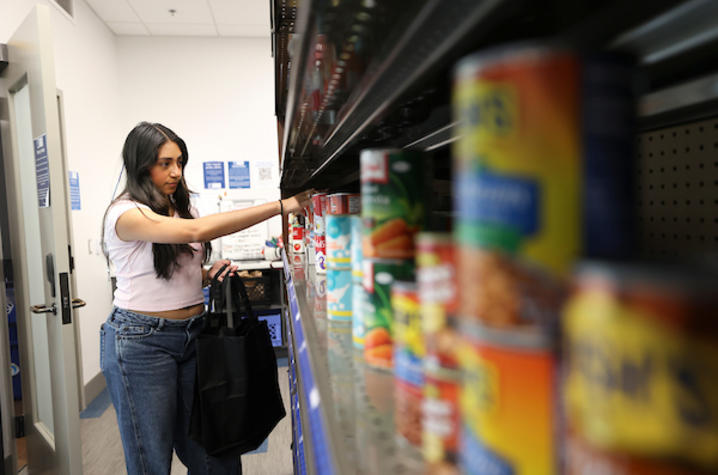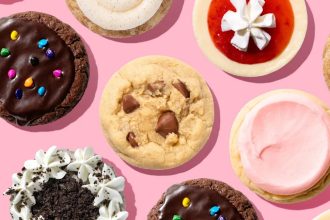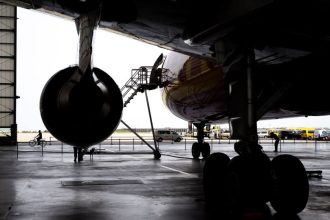Big Blue Pantry on August 25, 2025. (University of Kentucky photo by Mark Cornelison )
At a time when food insecurity has increased in the commonwealth, the University of Kentucky’s Big Blue Pantry is expanding services to meet students’ emergency food needs.
Students can already go to the Big Blue Pantry, located in Frazee Hall’s Room 016, and get a bag of food items. But it’s open during work hours — not on weekends or holidays.
Now, students can access emergency supplies after-hours with the installment of nine stocked food lockers in the basement of the William T. Young Library.
Andrew Perkins, the program coordinator for the Big Blue Pantry. (Photo provided)
Andrew Perkins, the program coordinator for the Big Blue Pantry, said these new lockers “are a way for us to expand our reach, to help a student who is in a crisis situation or an emergency situation, to provide that bag of food outside of our regular open hours.”
A student in need of food can apply online and will receive a unique code to one of the lockers, where they can go get a bag of food that should last two or three days. The bag has staple, nonperishable items like ramen noodles, macaroni and cheese, oatmeal, granola bars and canned goods.
It’s not clear how many University of Kentucky students live with food insecurity. Across the state, nearly 17% of Kentuckians have a shortage of food, data shows. In the last academic year, the Big Blue Pantry served around 900 people over 2,500–3,000 visits to the pantry, Perkins said.
“I think people can know anecdotally from their own experience at college that … sometimes going without, or having to skip a meal every once in a while has been part of it, and it’s sometimes been considered a rite of passage,” Perkins said. “Well, we think differently about that today. We know that … if a student is worrying about where their next meal is coming from, or if they’re going to have the opportunity to eat today, then they’re not going to be as focused on their studies or their or their success in life in the bigger picture. Our mission is to remove that barrier, to remove the barrier of food insecurity, so a student can reach their ultimate potential.”
The semester that just started is the first time the pantry is using the lockers, Perkins said, so staff need to study the needs and best ways to meet them. As of Sept. 5, two students had used the lockers.
“A low number is fantastic — I’m glad we have them; I hope they never get used, Perkins said. “I hope that a student is never in that kind of situation, but if they are now, we have the ability to mitigate that situation.”
According to Feeding America, hunger can worsen a person’s mental health, make it difficult to focus and lead to chronic health issues like heart disease and diabetes.
Making sure students have enough food, Perkins said, is key to helping them be academically successful.
“It is okay to need help,” he said, “and to ask for help as well.”
SUBSCRIBE: GET THE MORNING HEADLINES DELIVERED TO YOUR INBOX









